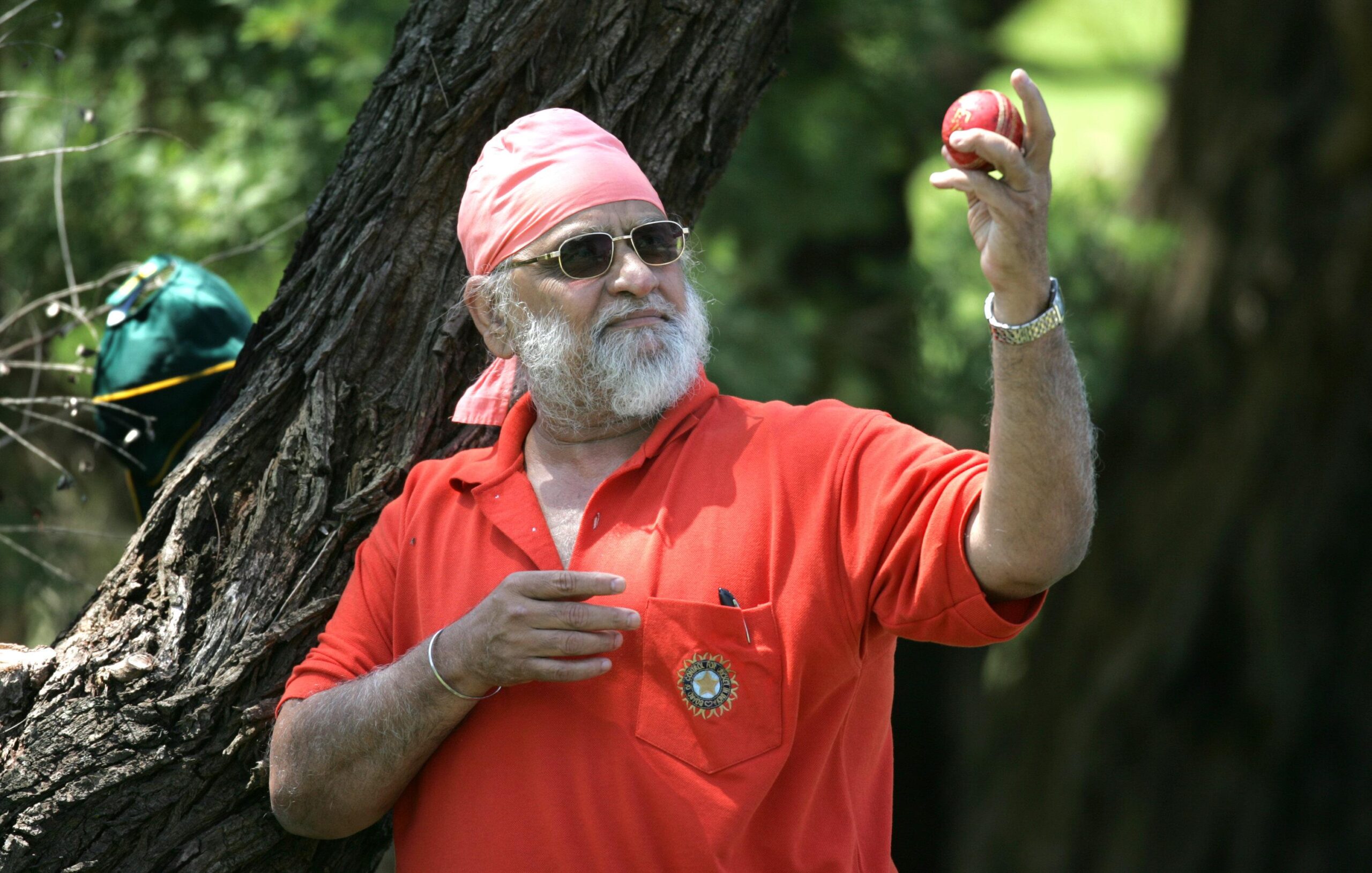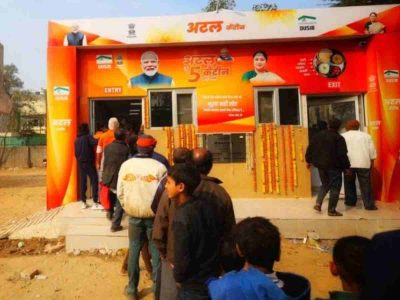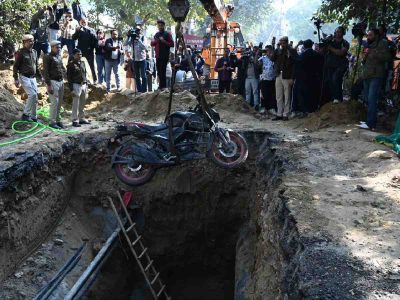Perhaps if India’s star batsman Virat Kohli looks back 20 years ago and recalls a day at the Ferozeshah Kotla when former India captain Bishan Singh Bedi lent him a shoulder, he would egress from the feeling of ecstasy he is in now thanks to his World Cup success and express gratitude while in grief.
Kohli, unknown then, was not selected for Delhi under-14 team and it was Bedi who consoled him and hit back at the administration.
Bedi, who died on Monday (October 23) at the age of 77, was like that — the father figure Delhi cricket yearned for and got.
He helped not just those who played for Delhi, but for other states as well like Kapil Dev and Yashpal Sharma when they played under him for North Zone in Duleep Trophy.
While reams have been written and hours spent by many discussing the flight, guile, accuracy, drift and deception in the art of left-arm spin that he had mastered and exhibited at international level inspiring a generation of left-arm spinners like Maninder Singh and Murali Kartik from India, Monty Panesar from England, Iqbal Qasim from Pakistan, among others, very few acknowledge the boost he gave Delhi cricket which went on to produce India stars and became a dominating force.
“He made us all fighters. Pant geeli ho jaati thee jab bade players ka naam sunte the doosri team me (We’d pee in our pants when we’d hear of the big names from other teams like Bombay and Karnataka). He was the one who said that if you have to progress in international cricket, you have to beat Bombay,” recalls Kirti Azad, who debuted for Delhi under Bedi’s captaincy, and later on won the World Cup.
Bedi led Delhi to the first Ranji Trophy title back in 1978-79 beating Karnataka in the final and defended it next season against Mumbai in the final.
“I remember beating Bombay in Delhi, beating Karnataka in Karnataka in that decade.”
Inspired by the confidence gained from it, the decade of 80s (from 1980-81 to 1989-1990) saw Delhi playing Ranji Trophy final eight further times, winning the title thrice. In fact, many who had played under him and inspired by him were part of the World Cup-winning team of 1983, including Azad, Madan Lal, Mohinder Amarnath, Yashpal Sharma and the team skipper Kapil Dev.
To measure the enormity of his influence, before the twin titles in the late 1970s, Delhi had played in the final only once — in 1976-77 and that too under Bedi’s captaincy.
“We all used to call him Bishan paaji (a term used in Lahoriya Punjabi for elder brother or father figure). He guided us like that, nursing us, teaching us cricket. Whatever cricket we have played for Delhi, India, it is because of him. The glory that Delhi achieved under his leadership, winning Ranji; and North Zone winning Duleep Trophy, that is unparalleled,” says former India international Surinder Khanna, who last met him a month-and-a-half ago, and played for Delhi under him.
Khanna, who was man of the tournament in the inaugural Asia Cup in 1984, smashed twin centuries in Delhi’s first Ranji title victory in 1978-79.
“I spent an hour with him. He walked on his own from his room. Normally he needed help, but he walked on his own that day. He told me that he cycles and walks.”
Bedi, probably upset with the team that wasn’t winning anything, had got together a bunch of players that would win for Delhi.
“He brought in many players — Chetan Chauhan from Maharashtra, Rakesh Shukla from Jamshedpur, Mohinder Amarnath, who was playing for Punjab. He made the team. We started beating teams we wouldn’t compete against earlier. We had this complex against big teams. We used to hear of big names and we’d lose against them mentally,” said Khanna.
The former wicketkeeper-batsman pointed out another significant contribution Bedi made to Delhi cricket, that is, bringing the primacy of days’ games to the forefront.
At a time when Delhi’s Hot Weather league cricket had turned into a one-day format from multi-day (80-over for each team over two days), he tried to bring back the multi-day format, which is considered to be the best training ground for a cricketer.
“SAIL Trophy, which included three-day matches, was his initiative. The first innings comprised 85 overs, the second 50 overs. In hindsight it helped many players. He was a visionary.”
His personality was a mix of that of a strict disciplinarian as well as a friend.
“His aura and personality — the way he used to make one feel his own. He was a stickler for hard work. People used to be annoyed with him for making them run. But it is those players only who played till 40 years. Later, they accepted it was good,” adds Khanna.
Azad recalls an incident from his younger days when good quality bats, shoes and other equipment were hard to get in India and had to be imported from England.
“I was playing my first Ranji game against Mumbai in 1979-80 at Delhi. I got my century with three sixes off Padmakar Shivalkar. We won the game and he was so happy. He opened his kit bag and said, ‘take this Gray-Nicolls bat, take these Gray-Nicolls gloves, Patrick shoes’; I was feeling embarrassed because in those days Patrick shoes would cost 400 rupees which was a huge amount. The pound was around 12-15 rupees then. Gray-Nicolls bat would cost 500 rupees.”
Azad thought he was being preferred. But soon the World Cup-winning all-rounder realised that Bedi kept shoes of various sizes — Nos 7, 8, 9, 10, 11.
“He kept them for everyone and gave them as reward. He was a very large-hearted man. We wouldn’t get much money those days but he would spend from his pocket.”
On one occasion, Azad reminisces, when the DDCA dished out pakoras to Delhi team members after practice, Bedi shouted, “What the hell. These guys practice hard for hours, sweat it out, and after practice and after matches, you give them pakoras. Give them boiled eggs, fruits. This isn’t the way to do it.”
On another occasion, when the team was playing in Punjab, he fought for accommodation for players, who were put up in a dorm.
“He screamed, ‘You can’t even give them 6-7 hours of sleep’. People called him anti-establishment. He wasn’t. He just fought for his players.”
There are plenty of stories of how he let players enjoy after the game, even hanging out with them with a “glassy (glass of beer)”. But he was also a tough taskmaster, who even while training 12, 13 or 14-year-olds in his coaching programme would be unrelenting.
Azad also recollected the time he was picked as a 12th man in his first year of first-class cricket.
“He asked me to run five rounds of the ground. I said, ‘but I am the 12th man’. He said, ‘Either you do, or I’ll make someone else the 12th man’. He joined me after two rounds.”
Bedi’s captaincy, former Delhi cricketers say, was aggressive. Defence was not in his lexicon. He always attacked.
The flight in his ball, which he is said to have provided consistently through his career, to invite batsmen to two results — their own doom or bowler’s — was the greatest example of it.
Probably, that is the lasting legacy he has left behind. Aggression not just on the field but off it too through his fight with the administration against various generations of (BCCI and DDCA) officials from 1980s till a few years ago when he finally hung up his boots.
As he told this reporter around five years ago, “At this late stage of my life, I don’t want to meddle in the muck [in administration]. I have grown tired of it.”
Facts:
Born: 1946 in Amritsar
Tests played: 67; Wickets taken: 266; Five wickets in an innings: 14.
First-class matches played: 370; Wickets taken: 1560; Five wickets in an innings: 106





